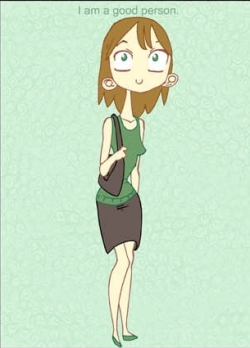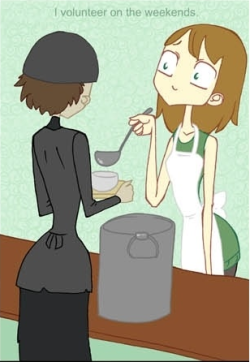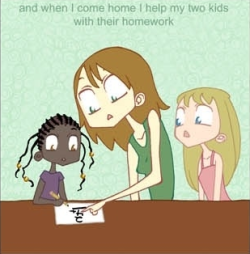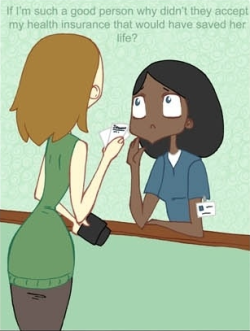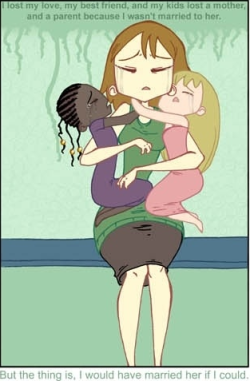"Education is Politics" by Ira Shor
Reflection
I read through the article and didn't really understand it at first, so I had to read through a few other blogs. Then after I understood the article, I realized that I had just pretty much demonstrated Shor's point in the article. By posting these blogs, we are able to go beyond the status quo and relate school learning into everyday life. By sharing our personal experiences (such as the many shared in last week's blogs), we are connecting our education with everyday life.
My Political Science class and this FNED class provide excellent examples for this article. (I know I like to compare these two classes a lot, but it's perfect because these two classes are completely opposite.) As we all know, our FNED class allows us to have excellent discussions about whatever topic we're learning about. We all share our personal stories, and I know a few of us (including myself) even discuss it outside the classroom. As soon as my husband picks me up after class is over, he asks me what we talked about in FNED. We have amazing discussions about the topics. The way that Dr. Bogad teaches allows our education to go beyond the classroom. On the other hand, I typically try to avoid discussing my Political Science class at home. If I am talking about it, it's because I'm complaining. The professor doesn't keep my attention at all, and doesn't even talk about relevant information. He's not even meeting the educational status quo as Shor describes it. I think more teachers should teach so that students at any age can relate to it outside the classroom. I'm still figuring out what kind of teacher I want to be, what works and what doesn't work. It seems to me that allowing education to go beyond the classroom helps students learn the material better and not just memorize it.
I'm still slightly confused on the article and don't think that I got the whole gist of it, so I'm looking forward to hearing everyone's discussion about it.
Sunday, November 27, 2011
Monday, November 21, 2011
Talking Points #9
"Citizenship in School: Reconceptualizing Down Syndrome" by Christopher Kliewer
Reflection
Okay so I just literally spent an entire hour typing up a really well-thought out and really long blog post that had my Reflection of this week's article. Then Blogger decided it was going to be stupid and not post the text, so when I tried to edit the post, all it had was the title. The body, all my hard work, was gone. So now I'm angry at Blogger and I'm going to put up a summary of what my post was about:
So when I was in 9th grade, my Chorus class had Special Education students. I was pretty annoyed about it at first, but then one day when we had a substitute teacher, everyone had finished their work and was chatting. I was upset that day and didn't feel like talking to anyone. One of the Special Education students, Stephen, had Down Syndrome and was confined to a wheelchair. He wheeled up to me and asked me my name. I figured I should be nice, so I told him, and then we started chatting. He was extremely friendly, and we both shared a love of music. He told me that his dream was to move to Nashville and become a famous country star. He had an amazing voice and we became pretty good friends after that, until I switched schools.
I remembered how annoyed I was at first that the students from Special Ed were coming into my class, but even now I'm still disgusted with myself on how I misjudged them. I don't know whatever happened to Stephen, but I really hope he was able to realize his dream.
This article was really great, in my opinion. I especially love what Shayne Robbins and Colleen Madison had to say on the matter. Shayne talked about how working, playing, and being together was pure learning, and Colleen talked about how people come in with their stereotypes and don't see the actual person standing in front of them. All in all, I finished reading this article with a lot of hope and a sense of knowing what kind of teacher I want to be. I can't wait to discuss this article in class.
Again I'm sorry this is so short but I'm sure y'all can imagine my frustration. I'm copying my text just in case.
(attempting to post from my iPod, hopefully it's a success)
Reflection
Okay so I just literally spent an entire hour typing up a really well-thought out and really long blog post that had my Reflection of this week's article. Then Blogger decided it was going to be stupid and not post the text, so when I tried to edit the post, all it had was the title. The body, all my hard work, was gone. So now I'm angry at Blogger and I'm going to put up a summary of what my post was about:
So when I was in 9th grade, my Chorus class had Special Education students. I was pretty annoyed about it at first, but then one day when we had a substitute teacher, everyone had finished their work and was chatting. I was upset that day and didn't feel like talking to anyone. One of the Special Education students, Stephen, had Down Syndrome and was confined to a wheelchair. He wheeled up to me and asked me my name. I figured I should be nice, so I told him, and then we started chatting. He was extremely friendly, and we both shared a love of music. He told me that his dream was to move to Nashville and become a famous country star. He had an amazing voice and we became pretty good friends after that, until I switched schools.
I remembered how annoyed I was at first that the students from Special Ed were coming into my class, but even now I'm still disgusted with myself on how I misjudged them. I don't know whatever happened to Stephen, but I really hope he was able to realize his dream.
This article was really great, in my opinion. I especially love what Shayne Robbins and Colleen Madison had to say on the matter. Shayne talked about how working, playing, and being together was pure learning, and Colleen talked about how people come in with their stereotypes and don't see the actual person standing in front of them. All in all, I finished reading this article with a lot of hope and a sense of knowing what kind of teacher I want to be. I can't wait to discuss this article in class.
Again I'm sorry this is so short but I'm sure y'all can imagine my frustration. I'm copying my text just in case.
(attempting to post from my iPod, hopefully it's a success)
Tuesday, November 15, 2011
So much for freedom of speech...
http://americancensorship.org/
So apparently (this is all news to me) tomorrow Congress might pass a bill that will limit what we can post on the Internet, censoring websites, etc. Whatever happened to freedom of speech? And I could possibly be arrested just for posting my favorite song on Facebook? I could be arrested for filming myself singing karaoke? Not only that, but we as a class could be arrested for having these blogs that could possibly violate copyrights? I realize there's more to the bill than that, but I'm just saying these things to show just how ridiculous this bill is. This is the age of technology, and we as Americans are guaranteed the freedom of press and speech. So why limit what I can do on the Internet? I have a lot of covers of songs posted on YouTube with links to them on my Facebook. I reblog pictures that are probably copyrighted all the time on Tumblr. So if this bill passes and I'm not in class, it's because I was arrested.
Again, I just can't believe how ridiculous this bill is. I'm usually not involved in politics or anything to do with the government, but this is just outrageous. Why can't Congress talk about more important, pressing issues that won't violate the Bill of Rights? Ughhhh the American government makes me so angry sometimes. Whoops, I guess I should start being careful about what I say online!
So apparently (this is all news to me) tomorrow Congress might pass a bill that will limit what we can post on the Internet, censoring websites, etc. Whatever happened to freedom of speech? And I could possibly be arrested just for posting my favorite song on Facebook? I could be arrested for filming myself singing karaoke? Not only that, but we as a class could be arrested for having these blogs that could possibly violate copyrights? I realize there's more to the bill than that, but I'm just saying these things to show just how ridiculous this bill is. This is the age of technology, and we as Americans are guaranteed the freedom of press and speech. So why limit what I can do on the Internet? I have a lot of covers of songs posted on YouTube with links to them on my Facebook. I reblog pictures that are probably copyrighted all the time on Tumblr. So if this bill passes and I'm not in class, it's because I was arrested.
Again, I just can't believe how ridiculous this bill is. I'm usually not involved in politics or anything to do with the government, but this is just outrageous. Why can't Congress talk about more important, pressing issues that won't violate the Bill of Rights? Ughhhh the American government makes me so angry sometimes. Whoops, I guess I should start being careful about what I say online!
Sunday, November 13, 2011
Talking Points #8
"Tracking: Why Schools Need to Take a Better Route" by Jeannie Oakes
Quotes
"Learning tasks consisted most often of memorizing and repeating answers to the teacher." I find this to be a huge problem in today's educational system. There's a difference between learning something and just regurgitating information. For example, in my math class, I actually learn new things, and I remember them long after we've discussed it. However, in my Political Science class, I merely memorize the necessary information needed that we'll be tested on, and once I've taken the test, I immediately forget it, just because of the way the professor teaches. It's no different in elementary school. Students should be educated, not just taught to parrot the teacher.
"In low-ability classes, for example, teachers seem to be less encouraging and more punitive, placing more emphasis on discipline and behavior and less on academic learning." This relates to my Service Learning experience. The Interventions that my fellow tutors and I help with are divided into 3 parts: green, yellow, and red. (Side note: I still use the Oxford comma. I refuse to not use it.) Anyway, we help the "yellow" students, who have "average" skills, while the green and red students ("above average" and "below average", respectively) are separated from the group to receive special attention. Although I tutor the "average" students, I still find it difficult to keep them focused and make sure they're playing the game correctly. They're focused more on winning when it should be just focusing on the educational value.
"Unless teachers and administrators believe and expect all students to learn well, they will be unlikely to create school and classroom conditions where students believe in their own ability and exert the effort it takes to succeed." I couldn't have said it better. How do we expect students to do well if we don't believe in them? If we're just as apathetic as they are, then we might as well not be teaching and they might as well not waste their time in school. I remember when I was in 4th grade, I had a math teacher named Mr. Hubbard. I was alright at math at the time, but once we learned about subtracting and having to take away from zero, I couldn't do it. I just didn't get it, and I didn't care. Mr. Hubbard did, however, and he took the extra time needed to help me to understand. He sent home a note to my mom, along with some practice worksheets, and advised her to watch me practice and make corrections. Once I finished the worksheets, I understood completely. Since then, I've had very little trouble in math, and it quickly became my favorite subject. If Mr. Hubbard didn't believe in the fact that I could learn how to subtract from zero, I wouldn't have my love of math. It can be done, we can teach our students, and we can help give them the confidence necessary to overcome any educational obstacle.
Quotes
"Learning tasks consisted most often of memorizing and repeating answers to the teacher." I find this to be a huge problem in today's educational system. There's a difference between learning something and just regurgitating information. For example, in my math class, I actually learn new things, and I remember them long after we've discussed it. However, in my Political Science class, I merely memorize the necessary information needed that we'll be tested on, and once I've taken the test, I immediately forget it, just because of the way the professor teaches. It's no different in elementary school. Students should be educated, not just taught to parrot the teacher.
"In low-ability classes, for example, teachers seem to be less encouraging and more punitive, placing more emphasis on discipline and behavior and less on academic learning." This relates to my Service Learning experience. The Interventions that my fellow tutors and I help with are divided into 3 parts: green, yellow, and red. (Side note: I still use the Oxford comma. I refuse to not use it.) Anyway, we help the "yellow" students, who have "average" skills, while the green and red students ("above average" and "below average", respectively) are separated from the group to receive special attention. Although I tutor the "average" students, I still find it difficult to keep them focused and make sure they're playing the game correctly. They're focused more on winning when it should be just focusing on the educational value.
"Unless teachers and administrators believe and expect all students to learn well, they will be unlikely to create school and classroom conditions where students believe in their own ability and exert the effort it takes to succeed." I couldn't have said it better. How do we expect students to do well if we don't believe in them? If we're just as apathetic as they are, then we might as well not be teaching and they might as well not waste their time in school. I remember when I was in 4th grade, I had a math teacher named Mr. Hubbard. I was alright at math at the time, but once we learned about subtracting and having to take away from zero, I couldn't do it. I just didn't get it, and I didn't care. Mr. Hubbard did, however, and he took the extra time needed to help me to understand. He sent home a note to my mom, along with some practice worksheets, and advised her to watch me practice and make corrections. Once I finished the worksheets, I understood completely. Since then, I've had very little trouble in math, and it quickly became my favorite subject. If Mr. Hubbard didn't believe in the fact that I could learn how to subtract from zero, I wouldn't have my love of math. It can be done, we can teach our students, and we can help give them the confidence necessary to overcome any educational obstacle.
Thursday, November 10, 2011
Promising Practices Conference
I had Workshop M: "It Gets Better". To be honest, I didn't realize just what kind of workshop I was getting myself into. Whatever I was expecting, the presentation blew it all away. Students from URI's LGBTQ group worked hard to put together a movie about the LGBTQ community's struggles and stories. They asked people to share their stories, and overall they had 12 hours worth of footage. They said that it was hard for them to squash all of it down into a 45 minute documentary, but they did it. I'll admit, I thought it was just going to be some sad yet rinky-dink video. The lights went out, and the movie started. Right from the beginning of the video, I was amazed. The effects weren't overdone and it was very elegant looking.
So basically the video was about various people around URI's campus that had a story relating to the LGBTQ community. A lot of professors and people in higher power positions were either gay/lesbian or was very close to a gay/lesbian person. One woman had a very interesting story that brought me to tears. When she was 18, her mom sat her down and told her that she had a feeling that her daughter was gay. (I didn't think to write down names, and I'm very sad that I didn't.) This woman didn't think much of it until a few years later when she realized the truth.She told her mother and the mother was very supportive. However, 10 years later the woman's mother committed suicide. The woman's message to us was that if anyone ever contemplates suicide, thinking that no one would miss them, there would ALWAYS be someone that misses you, that needs you, that wants you in the world. It was so heartbreaking. There were many stories about acceptance, telling the viewers that even when it seems a lot of people aren't accepting or supportive, there will always be someone out there that cares.
One man told a story that made me laugh a little. He was talking about how his brother was gay and when California legalized gay marriage, he and his partner moved there so they could get married. The gentleman stood at his brother's ceremony and noticed that the state of California wasn't sinking into the ocean, Hell didn't open up before them, and fire and brimstone weren't raining down from the sky. It made me giggle because I've often said things like that myself. Unfortunately, this gentleman's brother died shortly after due to AIDS, but at least he died married to the man he loved.
At the end of the movie, all the people who told their stories told us that it gets better. What I thought was really cool was they even said it in different languages, including American Sign Language. The entire movie was just so awesome and well-put together. Afterwards we discussed how we felt. It was nice to see so much support from everyone. We all shared our own stories and, just like in class, everyone had a connection. As for the other parts of the convention, it didn't really leave that much of an imprint on my mind like my workshop did. I'd really like for us to be able to watch the movie in class, just like I'd really like for RI-PBS to pick it up and show it on television. It's an awe-inspiring message that needs to be spread everywhere.
Of course, all the GLSEN articles really connected with the stories told in the movie, especially this one. One of the members of the convention shared her story: her son is in kindergarten and she has a suspicion that he's gay, which she's totally supportive of. However, he's already started being bullied by other kids in school--in kindergarten mind you--and it's so upsetting. To know that kids are being bullied that young is just so heartbreaking. However, it really does get better. There are countless videos that spread that amazing message.
So basically the video was about various people around URI's campus that had a story relating to the LGBTQ community. A lot of professors and people in higher power positions were either gay/lesbian or was very close to a gay/lesbian person. One woman had a very interesting story that brought me to tears. When she was 18, her mom sat her down and told her that she had a feeling that her daughter was gay. (I didn't think to write down names, and I'm very sad that I didn't.) This woman didn't think much of it until a few years later when she realized the truth.She told her mother and the mother was very supportive. However, 10 years later the woman's mother committed suicide. The woman's message to us was that if anyone ever contemplates suicide, thinking that no one would miss them, there would ALWAYS be someone that misses you, that needs you, that wants you in the world. It was so heartbreaking. There were many stories about acceptance, telling the viewers that even when it seems a lot of people aren't accepting or supportive, there will always be someone out there that cares.
One man told a story that made me laugh a little. He was talking about how his brother was gay and when California legalized gay marriage, he and his partner moved there so they could get married. The gentleman stood at his brother's ceremony and noticed that the state of California wasn't sinking into the ocean, Hell didn't open up before them, and fire and brimstone weren't raining down from the sky. It made me giggle because I've often said things like that myself. Unfortunately, this gentleman's brother died shortly after due to AIDS, but at least he died married to the man he loved.
At the end of the movie, all the people who told their stories told us that it gets better. What I thought was really cool was they even said it in different languages, including American Sign Language. The entire movie was just so awesome and well-put together. Afterwards we discussed how we felt. It was nice to see so much support from everyone. We all shared our own stories and, just like in class, everyone had a connection. As for the other parts of the convention, it didn't really leave that much of an imprint on my mind like my workshop did. I'd really like for us to be able to watch the movie in class, just like I'd really like for RI-PBS to pick it up and show it on television. It's an awe-inspiring message that needs to be spread everywhere.
Of course, all the GLSEN articles really connected with the stories told in the movie, especially this one. One of the members of the convention shared her story: her son is in kindergarten and she has a suspicion that he's gay, which she's totally supportive of. However, he's already started being bullied by other kids in school--in kindergarten mind you--and it's so upsetting. To know that kids are being bullied that young is just so heartbreaking. However, it really does get better. There are countless videos that spread that amazing message.
Like I said, the rest of the conference didn't really leave a huge impression on me like the workshop did, although the high school's presentation was pretty interesting. I'll definitely have to use some of the icebreaker techniques that they used!
Something to think about...
I came across these pictures on Tumblr. I've seen them before but never really gave them much thought.
Subscribe to:
Comments (Atom)

